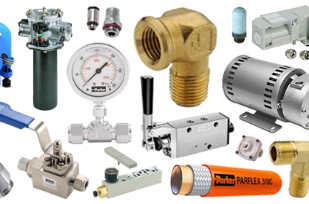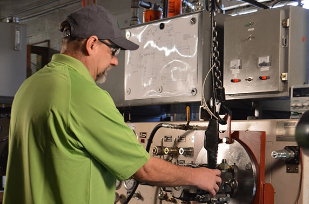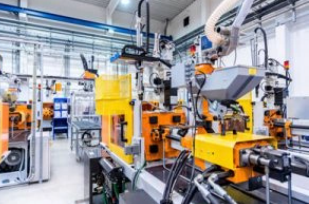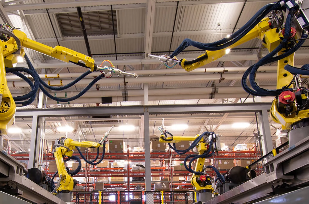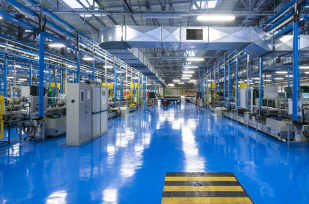
We can go weeks without eating, days without water, but within minutes without air – it’s all over. Breathing aids keep those too weak or too sick to breathe on their own a chance to survive. On December 3rd, 2020 the United States surpassed 100,000 hospitalizations for the respiratory virus COVID-19, and breathing aids will be responsible for saving the lives of many of them.
The need for high-quality compressors for life-saving ventilators and oxygen concentrators has never been more obvious than during the pandemic. When the life of a patient hangs in the balance nothing but the best will do. This leaves care providers begging the question, what brand is the best medical compressor for breathing aids, and why? Keep reading to learn what the leading compressors in the pneumatic industry are and why you should trust them above all the rest.
Breathing Aids in Medical Treatment
Breathing aids are often the last-chance treatment for life-threatening respiratory conditions. Patients with acute respiratory problems struggle to breathe and the blood-oxygen levels in the body can drop to levels that immediately cause health issues in the body. The normal healthy blood oxygen level is 95% and anything below 90% is cause for concern as it represents underlying health issues.
When oxygen levels in the blood dip below 90% the patient will suffer from the medical condition – Hypoxemia. The side effects of hypoxemia range from mild symptoms such as shortness of breath and in extreme cases loss of brain function, organ failure, and even death. COVID-19 is only one condition that can cause oxygen levels in the blood to drop dangerously low. Others include:
- Asthma
- Altitude sickness
- Amenia
- Emphysema
- Blood clots (particularly in the lungs)
- Chronic Obstructive Pulmonary Disease or COPD
- Pneumonia
Regardless of the cause, if the patient is not receiving enough oxygen on their own, some form of breathing aid is needed to get the oxygen levels in the blood back to safe levels. Nearly all hospital rooms have oxygen concentrators and they are used to treat patients on a regular basis.
Types of Breathing Aids
As the name suggests, breathing aids assist patients in the respiratory functions of the body when needed. There are several types of breathing aids that are used to treat patients’ respiratory issues. These machines push purified and higher concentrated oxygen/air mixtures into the lungs either through a mask or by inserting a tube into the lungs (Endotracheal Incubation). Types of breathing aids used in medical treatments include:
- C-PAP breathing machines
- Bilevel Positive Airway Pressure (BIPAP) breathing machines
- Respirators
- Ventilators
- Oxygen Concentrators
- Nebulizers
All these machines essentially have the same purpose – to help the patient breathe to restore and maintain good respiratory health. Oxygen delivery systems use a regulator to control the flow of oxygen from an oxygen tank. Medical applications such as ventilators utilize a compressor preparing and repurposing the air from the environment to ensure an uninterrupted steady supply.
Difference Between Respirators and Ventilators
There is an important distinction between respirators and ventilators. Respirators are devices that are designed to filter and purify breathing air to protect the health of the wearer. People use respirators by breathing through a face mask.
Respirators are most often used by professionals that work in environments where the air is too toxic to breathe safely like for firefighting and enclosed space welding. Ventilators, on the other hand, are primarily used as breathing aids.
When a patient is unable to breathe well enough on their own and requires life support they are put on a ventilator. The ventilator also functions much like a respirator in that it must deliver the best air possible to support the patient in recovery. Ventilators filter, purify, and control the oxygen levels delivered to the patient.
The Role of Compressors in Breathing Aids
The medical-grade compressor is the most vital component to provide a continuous stream of clean and safe air to the patient. In short, without the compressor operating perfectly the breathing aid device won’t work well or at all. In the case a compressor for a ventilator, if the compressor fails the patient is immediately cut off from oxygen creating a life-threatening situation.
The NFPA 99 regulations have been recently updated to categorize medical compressor systems into four categories:
- Category 1 vital systems where any interruption could cause serious harm or death to the patient (life-support)
- Category 2 systems that may experience short interruptions minimally impacting the health of the patient
- Category 3 systems that support patient care but with downtime not directly impeding the patient’s health care but may cause discomfort (oxygen concentrator)
- Category 4 systems can experience failure and extended downtime with zero impact on patient care (nebulizers)
Needless to say, the quality and reliability of a medical compressor of categories 1 and 2 are of the utmost importance. The NFPA 99 regulators go on to explain the requirements of compressors for these categories as they relate to system failure and fire/explosion risk.
Dew Point Requirements
The dew point of air is the point in which the air is at the temperature that moisture concentrates and forms liquid water (dew). The air we breathe every day from our natural environment contains moisture (humidity) and this water vapor is important for our respiratory health. If you remember from science class, molecules forced closer together reduces temperature.
Thus compressed air cools when compressed. Regulations dictate that the dew point of the system be below the point of frost and condensation. As you can imagine, collections of liquid water in breathing lines would obviously pose a threat to the patient as well as risk catastrophic failure of the compressor.
Breathing aids administering medical air must maintain the proper dew point and therefore require dew point alarm systems at both the end-point and the source. Air dryers or dehumidifiers are essential in controlling the dew point they must be used throughout the system and not just at the end-point.
Other Alarms
The functions of medical compressors must be monitored constantly for irregularities. As a failing system is not always immediately apparent alarms in the system must be installed for:
- Reserve pump activation
- Low pressure
- Carbon Monoxide levels
- Motor overload
- High discharge temperature
- Activation of reserve transformer
All of these alarms are required by code for manufacturers to follow, but the true measure of manufacturing is what they do to go above and beyond requirements. The best medical compressor is held to an entirely different standard which you will only find by the global leaders in the industry.
Breathing Aid Compressor by GAST
Gast Manufacturing™ has been a leader in the pneumatic products manufacturing industry since 1921. Over the years they have innovated many products including compressors. Long regarded as the top choice when quality and reliability is the most important consideration.
Their reputation for serviceability and longevity makes GAST the obvious choice for urgent care providers. GAST is well known for setting the standard for:
- Compact and lightweight
- Power efficiency
- Reliability with backups systems
- Quiet operation
GAST is constantly pushing the envelope of quality compressors and backs up their claim to fame with quality guarantees on all their products. Considering the high stakes with breathing aids, it’s no wonder they are a global leader in the industry. Click here to shop GAST compressors and vacuum pumps.
Breathe Better with JUN-AIR
Another solid choice to supply your medical compressor needs is JUN-AIR™. From clinics to operating rooms in over 100 countries, JUN-AIR offers top-quality compressors and cabinets guaranteed to serve your operational needs with the highest performance money can buy. JUN-AIR has you covered no matter your medical air compressor needs serving a variety of health sectors including:
- Bladder and kidney stone management (ultrasonic and pneumatic lithotripsy)
- Physical Fitness and Rehabilitation
- Dental Care
- Ear-Nose-Throat (ENT) disease treatments
- Veterinarian Applications (dental and injury treatments)
JUN-AIR has been manufacturing high-quality compressors since 1958. GAST manufacturing acquired JUN-AIR in 2006 and the combined partnership brings nearly two centuries of experience and dedication to their customers unmatched by the competition. RG Group is an authorized distributor and proud strategic partner of Jun-Air products and breathing aid solutions.
To Breathe or Not to Breathe
Some things in life require no compromise and breathing is one of those things. When shopping around for breathing aids make sure you are getting the best technology has to offer. The patients under your care deserve that much. Our industry experts are standing by to guide you in the right direction.
Fill out our easy online form to request a quote or ask for more information. Thank you for choosing RG Group.

